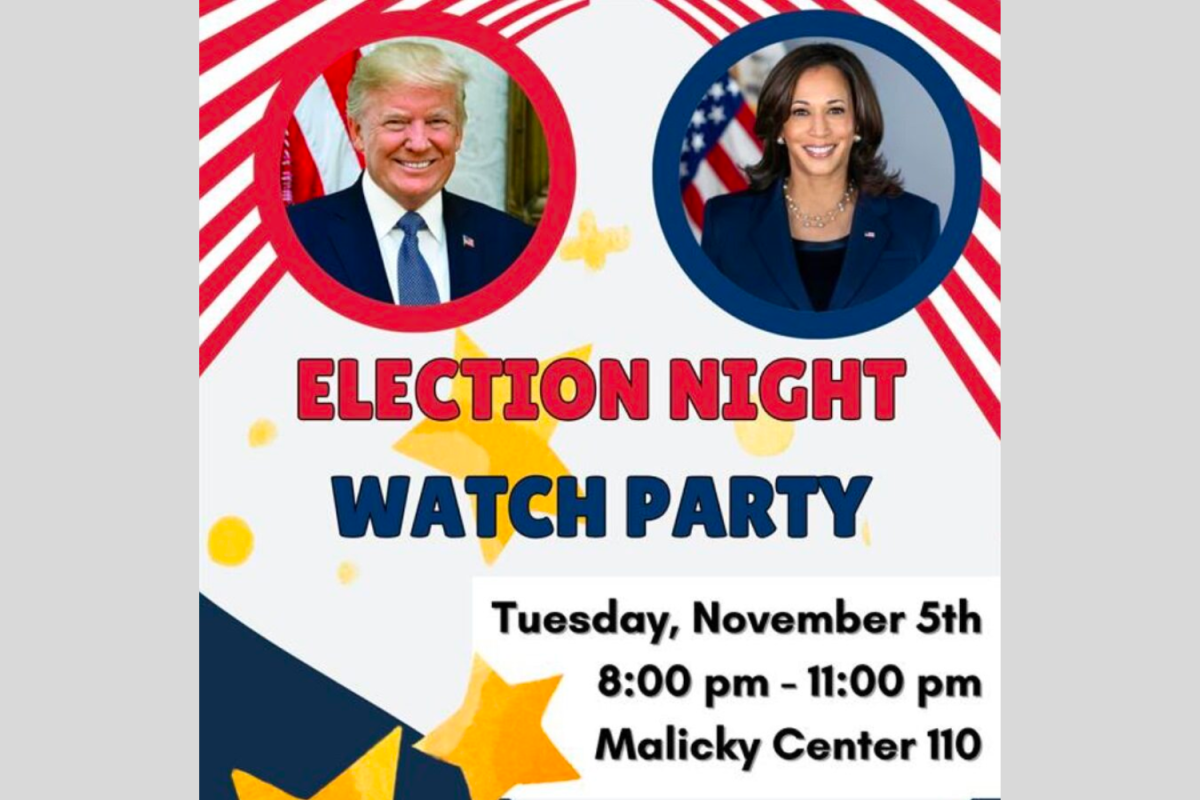As the world watched the U.S. presidential election unfold, Baldwin Wallace University’s political science department held an election night watch party on Nov. 5, where students gathered at Malicky Center to watch the results and have a discourse on the night’s event.
Javier Morales-Ortiz, chair of the political science department, and his colleagues worked together to encourage civic discourse among all students who want to participate in politics.
“We want to bring more attention to students on the importance of your civic responsibility, and to be aware of what happens in your country,” Morales-Ortiz said.
Additionally, Morales-Ortiz said that students should remember the privilege they have to vote, one that those in many other countries do not have.
“I want the students to take away from the election watch party [that] the United States [is] in its maximum glory,” Morales-Ortiz said. “Think about all these other countries that cannot participate in this activity of casting a vote.”
The political science department also wants non-political science students involved in the conversation of politics, and they hope to create an environment where all students feel comfortable enough to share their opinions regardless of political beliefs. Morales-Ortiz said that many young people today are not comfortable with having controversial conversations.
“Most of the time, the position that an individual has on certain issues is very personal,” Morales-Ortiz said. “It’s so personal we fail to understand why that person has that position. Once you find out about that position, you tend to respect that personal opinion.”
Senior political science student Daijah Brown shared the importance of the election and what it means to her, and how while some areas of politics are up for debate, others are non-negotiable.
“This is one of the most important elections,” Brown said. “We have misinformation, we need our citizens to be educated. We need people to be able to make decisions, not based on what their fear is, but what are the logical things.
“We can disagree on size of government, government spending, whatnot, but when we’re starting to disagree on the fundamental idea of what it means to be a human, that’s why this is important,” Brown said.
Morales-Ortiz and Brown both stressed the importance of students voting, even if they do not like the candidates.
“It is a civic duty and civic responsibility to cast a vote,” said Morales-Ortiz.
You have to think about how things are going to affect you and how things are going to affect the things you care about,” Brown said.


































Alec Pemberton • Dec 21, 2024 at 12:14 am
Perhaps a funny thing but I feel proud that my country grants me the right to vote: not surprisingly = I actually do always vote. Alec